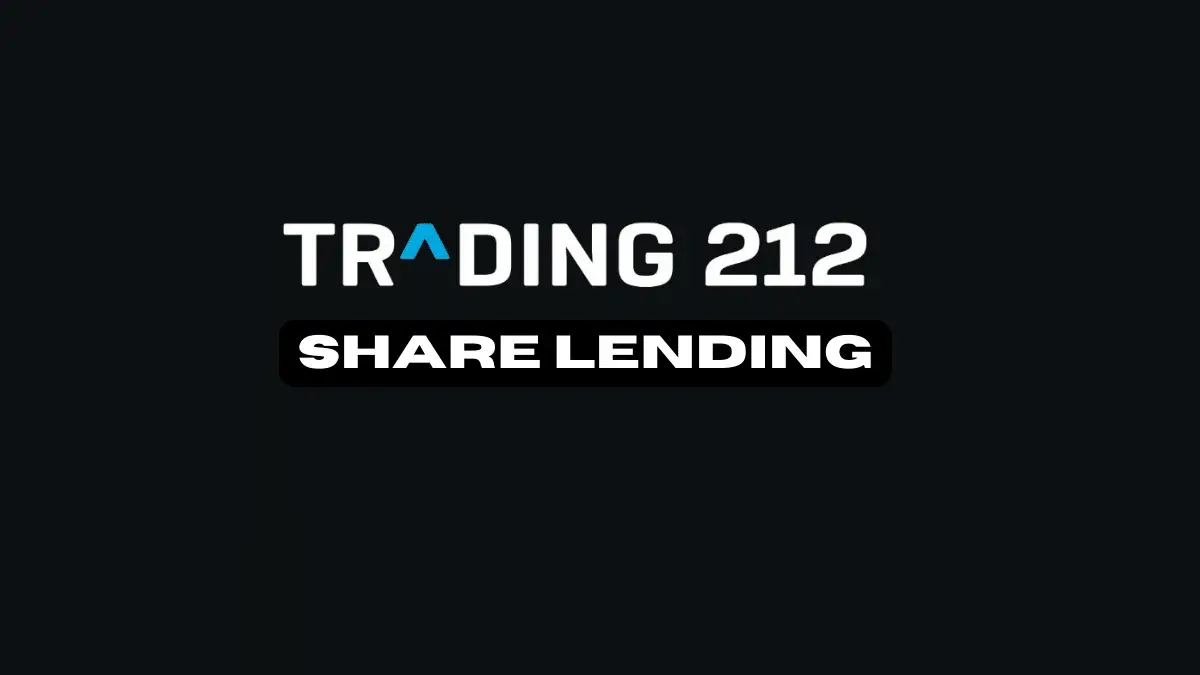If you look into the terms and conditions of Trading 212 then you will see that they use a practice called SHARE LENDING.
This may not be something you are familiar with and may have some questions about.
I have seen some commentary online from Trading 212 clients that are not happy about this policy, but should you be really worried?
Let’s answer some of these questions you may have.
June 2023 Update
Trading 212 announced that they soon will soon be reinvesting share lending, and reconstructing it so that you can share a 50/50 split of the income they earn from lending out your stocks and shares. You will also have the opportunity to disable this feature if you want. The roll out is expected to being on the 5/7/2023.
What is share lending?
Share lending is a practice where the brokerage lends the shares you hold with them to usually large institutional investors who are short selling a particular stock (expecting the share price of a stock to decrease).
Why do brokers do share lending?
The answer to this is quite simple, money.
Share lending is another income stream for brokers and they can charge a interest to those that borrow your shares.
Investment brokers are always looking for new income streams. At the end of the day, they are a profit-driven company. Brokers often compete with one another by portraying themselves as ‘Commission Free’ but do make money in many other ways.
Particularly, through the bid-ask spread on stocks which is like a hidden fee. This is the difference between the price that the broker will buy or sell a stock and the actual market price.
As per Trading 212’s latest financial statements for their UK entity, the company made a profit after tax for the 2021 financial year of £45m.
How can I see if my shares have been lent out on the Trading 212 App?
If you want to check if any of the stocks in your portfolio have been lent out by Trading 212 then you can check by following these steps to see the Securities Lending Indicator:
Step 1 – Click on a stock in your portfolio that you want to check

Step 2 – Scroll to the bottom of the page

Step 3 – Check the percentage of shares lent out

Can you opt out of share lending?
Currently, you cannot opt-out of share lending on Trading 212 and continue to use their services as normal.
Trading 212 clients who have had accounts for years are asked to give consent to use their shares for share lending.
Any new clients will be agreeing to share lending as part of the registration process with Trading 212.
Clients that decide to opt out will either have their accounts limited to a Sell-only basis or their agreement with Trading 212 will be terminated and their account closed.
Will share lending affect your portfolio?
You should experience no differences to your investment portfolio whether some of the stock have been lent out or not.
The arrangement with Trading 212 is as follows:
Trading 212 will act as the counterparty. Whenever any of your shares are lent out by Trading 212, the lending agreement is specifically between you and Trading 212 rather than another 3rd party.
Trading 212 will then will set up their own agreements with borrowers.
Your upcoming dividends will not be affected by share lending, all share will be recalled before the ex dividend-date.
Is there any danger to the Investor?
Even in the unlikely event, the borrower is unable to return the shares to Trading 212, you are still entitled to your full holding to be returned to you.
Your ownership rights to the shares do not change whatsoever, even if your shares have been lent out under this Trading 212 policy.
Borrowers are required to put up a minimum of 102% of Collateral for any shares lent to them. This ensures there is always enough collateral there to cover your shareholding.
If the broker were to ever go bust because then the investor is also protected under investor compensation schemes that can help investor recover up to €20k of the value of assets lost.
What are people unhappy about?
Share lending common practice for Investment Brokerages, its quite similar to what banks do with your money held in your current account.
Banks are only required to hold certain amounts of customer deposits on hand at a time, the rest they can lend out to borrowers. This is quite a similar process with much stricter rules as 102% of the borrowings must be collateralised.
What tends to rub people up the wrong way is that Trading 212 is using their stocks and shares to earn money while the actually owner of the assets receives no benefits. Trading 212 will tell you the benefit is that you get to use a trading platform that remains commission free but we know that they make plenty of money from other charges.
Unfortunately, if you are not happy with share lending there is no option for you to choose otherwise and remain using Trading 212.
Disclaimer: This blog post is for informational and educational purposes only and should not be construed as financial advice.






